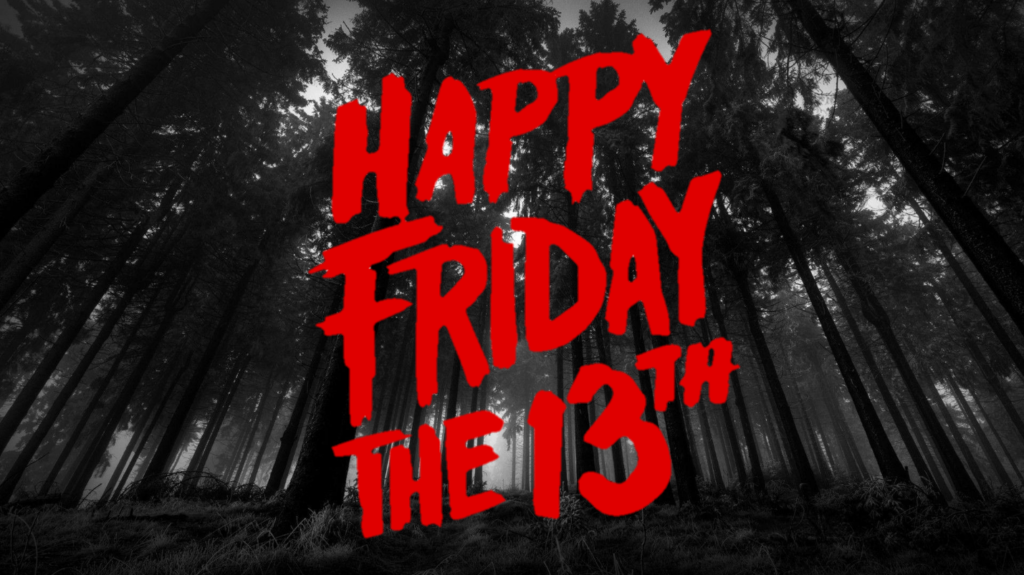Friday the 13th is a date that has long been associated with superstition, mystery, and fear. From its historical roots to its portrayal in popular culture, the combination of Friday the 13th day of the month has garnered a reputation as being unlucky or ominous. But why is this day surrounded by such intrigue? Let’s delve into the myths, origins, and significance of Friday the 13th.
The Origins of Friday the 13th
The superstition surrounding Friday the 13th is a blend of numerical and cultural beliefs:
The Number 13
- Numerical Aversion: The number 13 has historically been viewed as unlucky in many cultures. This aversion, known as triskaidekaphobia, stems from its deviation from the “perfect” number 12, which represents completeness in many traditions (e.g., 12 months in a year, 12 zodiac signs).
- Historical Associations: In Norse mythology, the story of Loki crashing a banquet as the 13th guest led to chaos and death. Similarly, at the Last Supper in Christian tradition, Judas Iscariot, the betrayer of Jesus, was the 13th guest.
Friday’s Reputation
- Religious Context: In Christianity, Friday is thought to be the day Jesus was crucified. This has contributed to the perception of Friday as an unlucky day.
- Historical Events: Some historians suggest that the superstition dates back to Friday, October 13, 1307, when King Philip IV of France ordered the arrest of the Knights Templar, leading to their persecution.
The convergence of these two elements—Friday and the number 13—has compounded their association with bad luck.
Modern Myths and Superstitions
Today, Friday the 13th is accompanied by numerous myths and superstitions:
- Avoidance of Activities: People often avoid traveling, starting new projects, or making significant decisions on this day.
- Financial Impact: Some studies suggest that businesses lose millions of dollars due to reduced consumer activity on Friday the 13th, as people opt to stay home.
- Urban Legends: Tales of accidents, mishaps, and hauntings on this date reinforce the belief in its ominous nature.
Pop Culture and Friday the 13th
Friday the 13th has also gained a foothold in popular culture, most notably through the horror franchise of the same name. The “Friday the 13th” movie series, which began in 1980, introduced audiences to the iconic character Jason Voorhees and became a cultural phenomenon. With its suspenseful storytelling and gruesome imagery, the franchise solidified the day’s reputation as one of horror and intrigue.
🎥 Film Series
| Film | U.S. Release Date | Director(s) | Screenwriter(s) | Story | Producer(s) |
|---|---|---|---|---|---|
| Friday the 13th | May 9, 1980 | Sean S. Cunningham | Victor Miller | Sean S. Cunningham | Sean S. Cunningham |
| Friday the 13th Part 2 | May 1, 1981 | Steve Miner | Ron Kurz | Steve Miner | |
| Friday the 13th Part III | August 13, 1982 | Martin Kitrosser & Carol Watson | Frank Mancuso Jr. | ||
| Friday the 13th: The Final Chapter | April 13, 1984 | Joseph Zito | Barney Cohen | Bruce Hidemi Sakow | |
| Friday the 13th: A New Beginning | March 22, 1985 | Danny Steinmann | Martin Kitrosser, David Cohen, & Danny Steinmann | Martin Kitrosser & David Cohen | Timothy Silver |
| Friday the 13th Part VI: Jason Lives | August 1, 1986 | Tom McLoughlin | Don Behrns | ||
| Friday the 13th Part VII: The New Blood | May 13, 1988 | John Carl Buechler | Daryl Haney & Manuel Fidello | Iain Paterson | |
| Friday the 13th Part VIII: Jason Takes Manhattan | July 28, 1989 | Rob Hedden | Randolph Cheveldave | ||
| Jason Goes to Hell: The Final Friday | August 13, 1993 | Adam Marcus | Dean Lorey & Jay Huguely | Jay Huguely & Adam Marcus | Sean S. Cunningham |
| Jason X | April 26, 2002 | James Isaac | Todd Farmer | Noel J. Cunningham | |
| Freddy vs. Jason | August 15, 2003 | Ronny Yu | Damian Shannon & Mark Swift | Sean S. Cunningham | |
| Friday the 13th | February 13, 2009 | Marcus Nispel | Damian Shannon, Mark Swift, & Mark Wheaton | Michael Bay, Andrew Form, Brad Fuller & Sean S. Cunningham |
Table source Wikipedia
Impact on Media
- The horror genre’s embrace of Friday the 13th has inspired countless books, TV shows, and films exploring themes of fear, superstition, and the paranormal.
- The day has become synonymous with spooky promotions, events, and themed activities.
Scientific Perspective
While the superstition persists, science offers a more rational perspective:
- Psychological Effects: Experts suggest that fear of Friday the 13th may lead to a self-fulfilling prophecy, where individuals’ heightened anxiety contributes to mishaps.
- Statistical Evidence: Studies have found no significant increase in accidents or bad luck on Friday the 13th compared to other days.
How to Embrace Friday the 13th
Instead of fearing Friday the 13th, consider embracing it as a day of fun and reflection:
- Host a Movie Night: Dive into the thrill of horror films like the “Friday the 13th” series.
- Learn the History: Explore the fascinating origins and stories behind the superstition.
- Celebrate Positivity: Use the day to debunk myths and focus on creating positive experiences.
read in details
Final Thoughts
Friday the 13th continues to captivate our imaginations, blending ancient superstitions with modern cultural phenomena. Whether you view it as a day of misfortune or an opportunity to celebrate the mysterious, the lore surrounding this date serves as a reminder of the enduring power of human beliefs and storytelling. Embrace the day with curiosity, and you might find it’s not so unlucky after all!
what is the real name of khan sir

